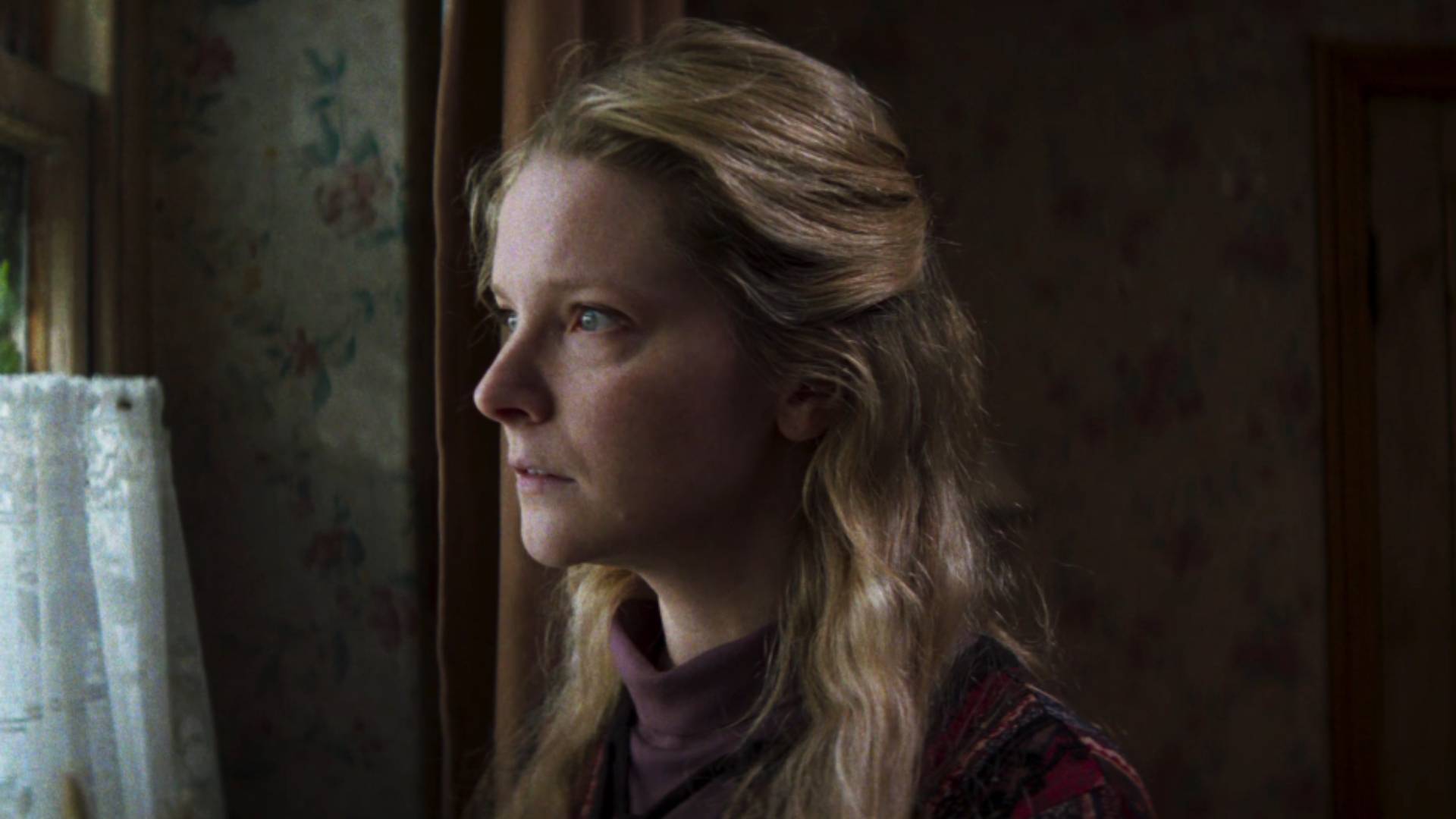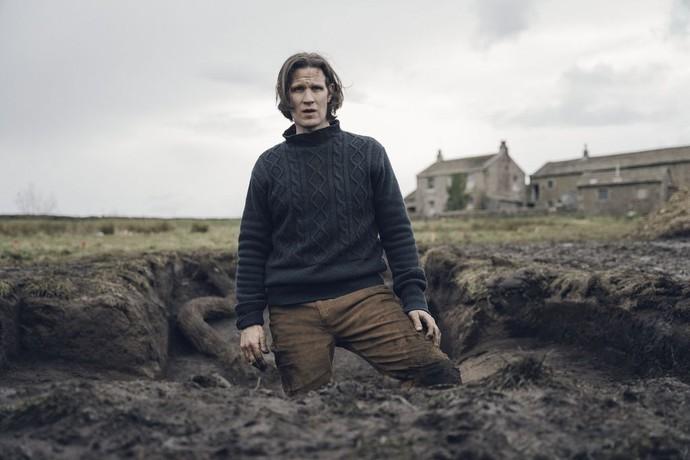Blame the high cost of city housing, or killer smog. What else can explain a bright young couple’s move from 1970s Leeds to Starve Acre, an isolated, near-derelict farm in rural Yorkshire that has to be the spookiest back-to-the-land setting since The Wicker Man.
The husband, brainy Richard (Matt Smith), teaches archaeology at a nearby university; the wife, shy, ethereal Juliette (Morfydd Clark, pictured below), manages the farm. Ttheir son, little asthmatic Owen (Arthur Shaw), is just plain weird, claiming that a spirit, "Jack Grey", whistles to him at night. Richard, a man of science, believes that doctors can solve anything, but that’s before the couple is caught off balance by Owen’s violent outburst at a fair.
Shunned by their neighbours – except Sean Gilder’s gruff Gordon, who’s toiled on the farm since Richard was a child – the family retreats inward. Tragedy further isolates them: Juliette seeks refuge in spiritualism, while Richard, already the brooding type, sleepwalks through his lectures about unearthing the past and then, ominously, sets about digging deep holes in muddy back pastures. He shies away from discussing his own unhappy, likely abusive childhood at Starve Acre, until Juliette discovers a cache of diaries kept by her late father-in-law. It seems that “Jack Grey” has been in residence for longer than anyone suspected.
 Director Daniel Kokotajlo clearly knows his folk horror antecedents, from The Blood on Satan’s Claw to the stories of MR James. Starve Acre, based on a novel by Andrew Michael Hurley, shuns shock scares, instead finding sinisterness in its lonely setting. The cinematography by Adam Scarth, favours long takes and shades of brown and mustard seed: The farm, forever wrapped in a veil of Northern mist, becomes a landscape of grief.
Director Daniel Kokotajlo clearly knows his folk horror antecedents, from The Blood on Satan’s Claw to the stories of MR James. Starve Acre, based on a novel by Andrew Michael Hurley, shuns shock scares, instead finding sinisterness in its lonely setting. The cinematography by Adam Scarth, favours long takes and shades of brown and mustard seed: The farm, forever wrapped in a veil of Northern mist, becomes a landscape of grief.
When Juliette’s lively sister, Harrie (Erin Richards), visits from the city – toting a hilariously fluffy lap dog – she witnesses a truly frightening séance. It’s not clear if a soul is being set to rest or an evil spirit is being summoned. From there, though, the film treads uneasily toward its strange yet inevitable conclusion.
Juliette and Richard – and everyone who comes near – fall under the influence of an ancient, terrible force that takes the form of a wild hare. The creature’s genesis, from skeleton to uncanny life, is one of Starve Acre’s finest, queasiest tricks: the effect will either inspire giggles or sheer terror, depending on the viewer. When Jack’s university rival stumbles upon the hero’s backyard excavation, he exclaims, “You’ve hit the jackpot!” and plunges in to help dig, ignoring the obvious signs – like a raised shovel – that something, everything, is amiss. But folk horror, and Starve Acre, are like that: once a spell is cast, we’re helpless.













Add comment